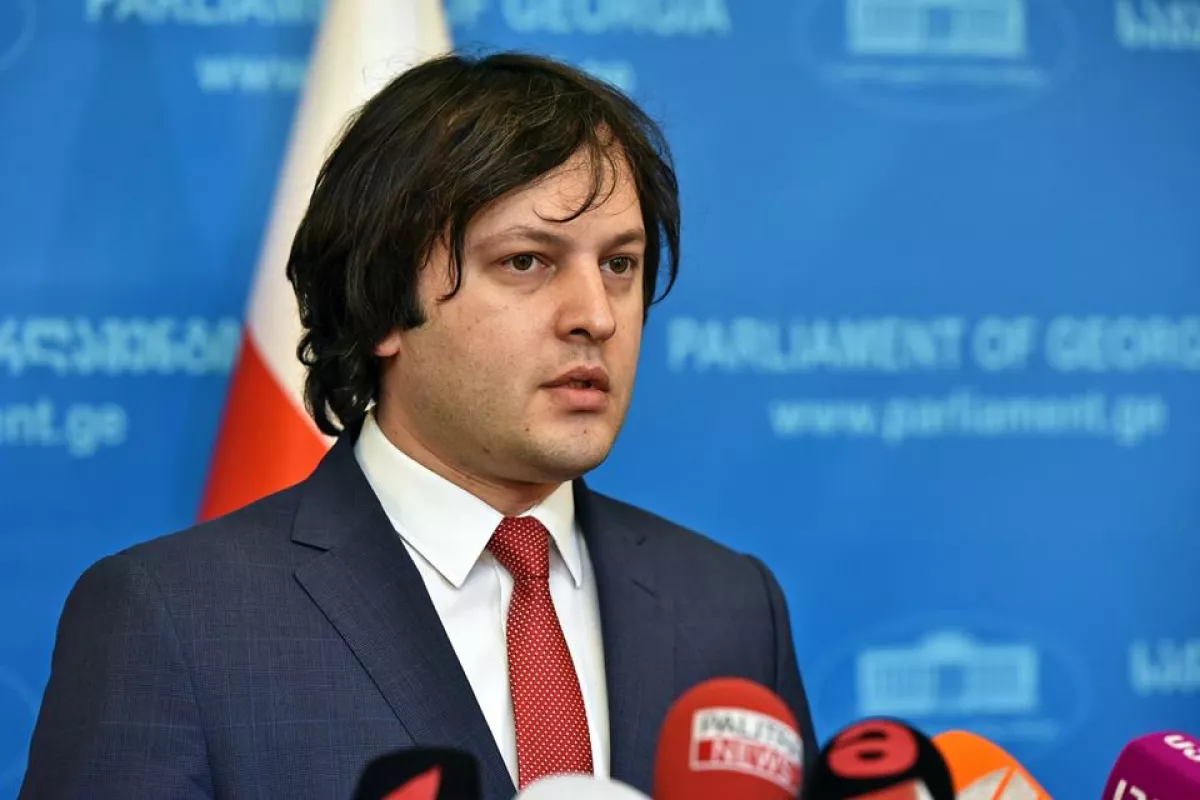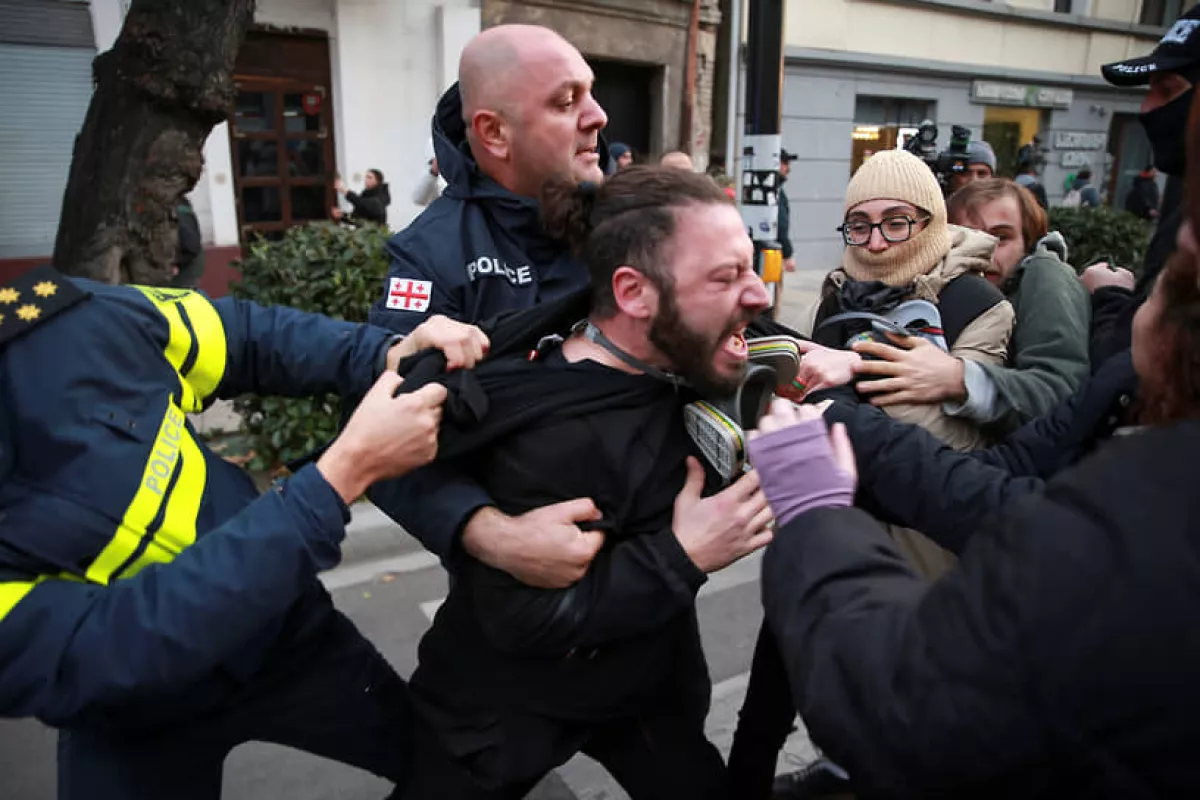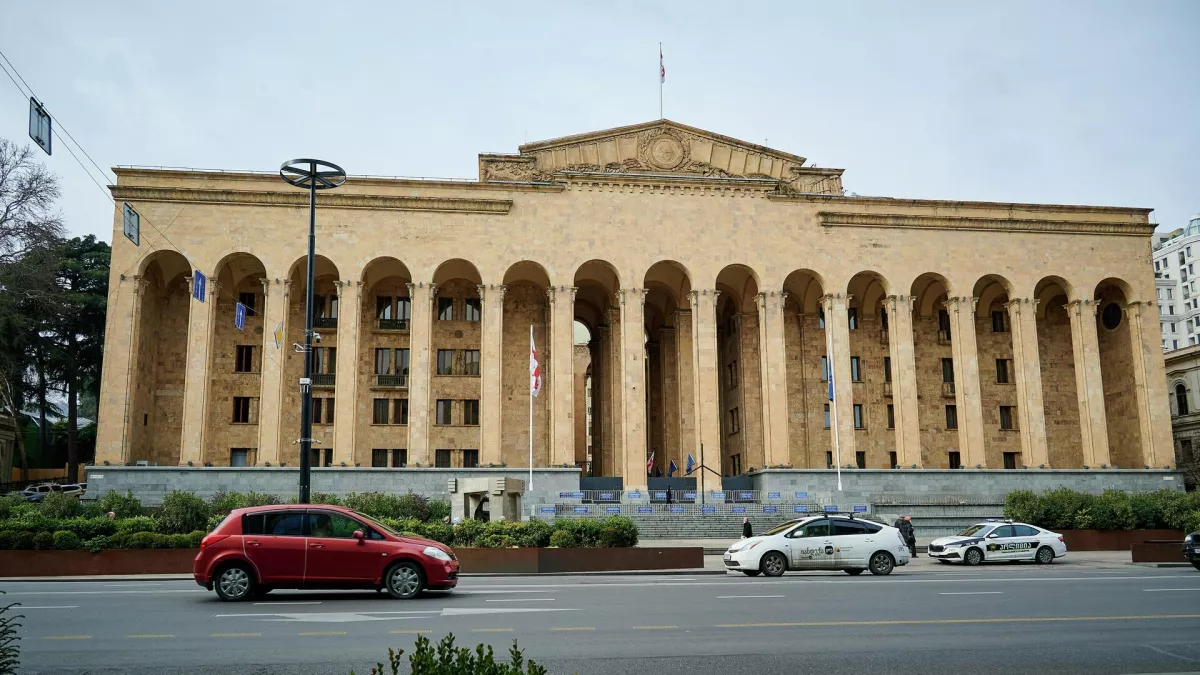"Euromaidan" without a chance Georgia restores order
On December 4, the Georgian authorities took decisive steps to restore order in the country. In Tbilisi, arrests began of key leaders from the pro-Western opposition who had been organizing the unrest. The police raided their offices and "Maidan headquarters," conducting inspections and searches. A large amount of protective gear and equipment for protests and street clashes was seized, as well as fireworks and various pyrotechnics, which had been used to attack the police in previous days, along with bottles prepared for Molotov cocktails.
Among those arrested was, in particular, Nika Gvaramia, one of the main organizers of the unrest. At the same time, Georgian Prime Minister Irakli Kobakhidze promised that other leaders of the pro-Western opposition would not escape responsibility.
“Leaders of the radical opposition and 'wealthy NGOs' are hiding in their offices, but they are the ones responsible for the brutal and systematic violence on Rustaveli Avenue in recent days,” said the Prime Minister.
“The systematic supply of people with pyrotechnics was carried out by the corresponding political forces; this is absolutely clear and evident,” Irakli Kobakhidze stated, making it clear that opposition politicians who incited young people to protests and violence would face criminal charges. He also directly pointed out the immorality of Salome Zourabichvili's call for Georgian schoolchildren to join opposition actions: "The politicization of schools is the face of liberal fascism in our country." This was a clear indication that Salome Zourabichvili could also face criminal responsibility once her presidential term ends.

The decisive actions of the Georgian authorities immediately affected the entire "revolutionary" atmosphere. Most opposition leaders who managed to avoid arrest on December 4 either went into hiding or fled. This is understandable, as the organizers of the unrest arrested by police in Tbilisi now face up to 9 years in prison.

Moreover, after the searches and arrests at opposition offices, the citizens of Georgia, without the help of law enforcement, began to "deal with" those who wanted to set their country on fire and sacrifice their children. In the evening, a scuffle occurred near the Courtyard Marriott Hotel, where a meeting of representatives from four leading Georgian opposition groups was taking place. After the meeting ended, their opponents were waiting for them at the hotel exit. A physical confrontation broke out, and the police arrived at the scene, arresting several individuals, including opposition members Zura Datunashvili and Aleko Elisashvili. Most of the opposition representatives, however, chose to flee the scene.
In essence, with targeted actions by law enforcement, the "Maidan" movement was decapitated. A real hysteria ensued with Salome Zourabichvili, who, until December 16, still enjoys presidential immunity. She literally began "screaming" for external help: "Repressions in Georgia – My urgent call to our partners and those who want to prevent crisis to go deeper and instability, it is time to put strong pressure on a ruling party that is driving the country over the cliff! Do not be late…!" Salome Zourabichvili wrote on social media.
It seems that the decisive actions taken by the Georgian government caught the West by surprise, as they did not fit the typical scenarios of "Maidans" and colour revolutions. It’s clear that the Georgian authorities can no longer be intimidated by "threats of sanctions." As a result, on December 4, most Western politicians who had previously supported the protests in Georgia chose to take a step back. Only the spokesperson for the European Union's foreign policy, Anitta Hipper, called on the Georgian authorities to "stop using excessive force and ensure freedom of assembly."
Thanks to the determination and professionalism of Georgia's law enforcement agencies, the seventh night of protests in Tbilisi (since November 28) passed quietly. Far fewer people gathered compared to previous nights. Arrests and searches of opposition parties and leaders, as well as preventive searches and detentions of suspicious individuals heading to the protest from the metro, significantly reduced the level of tension. Furthermore, opposition leaders and instigators were notably absent from the protest outside the Georgian Parliament.

As a result, during the night of December 4 to 5, there were no attacks on the police or attempts to storm the parliament building. The protest gradually dissipated on its own by morning, and there was no need to disperse it this time. Unless there are extreme provocations, the protest will likely fade out on its own.
However, in the near future, the opposition will likely have reasons to rally its supporters again. In particular, there may be an escalation on December 14 – the day of the election for Georgia’s new president. Additionally, after December 16, Salome Zourabichvili’s presidential term will expire, and she may face arrest and legal action. After December 29, the day of the inauguration of the new president, Zourabichvili will be required to vacate the presidential residence. The West may also impose sanctions on Georgia, but it seems that the current Georgian government is not overly concerned. Such sanctions are more likely to push Georgia even closer to its traditional partners – Azerbaijan and Türkiye– as well as China.
Vladimir Tskhvediani, Georgia, for Caliber.Az








